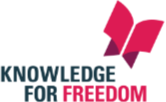Knowledge for Freedom alumni are invited each summer to participate in fellowship programs to further explore major questions in political philosophy. Our most recent fellows’ essays are presented below in an anthology of student voices. These essays are the works of young scholars, and as such, reflect craftsmanship and ideas still in progress, and are written in the spirit of open inquiry.
Filter by program
Filter by tags
View all
()
activism
(0)
AI
(0)
alienation
(3)
attention
(1)
censorship
(0)
climate
(0)
colorism
(1)
community
(8)
Culture
(4)
democracy
(7)
discrimination
(1)
education
(14)
empathy
(4)
equality
(6)
ethnicity
(1)
extremism
(1)
family
(1)
free speech
(1)
freedom
(1)
gender
(8)
history
(7)
identity
(5)
illness
(0)
inequality
(7)
inequality; justice; democracy; history; love; representation; race; racism; society
(0)
information
(2)
injustice
(2)
Isolation
(2)
justice
(8)
language
(0)
law
(0)
leadership
(4)
loneliness
(1)
love
(2)
marketing
(1)
media
(4)
media and social media
(1)
mental health
(1)
new perspectives
(1)
oppression
(1)
politics
(1)
power
(1)
protest
(1)
race
(11)
race and racism
(0)
racism
(11)
religion
(1)
religionpower; community; extremism
(0)
representation
(1)
sexism
(2)
sexuality
(1)
social media
(5)
society
(11)
storytelling
(1)
technology
(2)
violence
(5)
voting
(0)
war
(1)
Women
(4)
women's rights
(1)
Women's rights
(0)
Teagle Humanities Fellowship
Mim Datta reads Sophocles’s Theban Plays and the Bhagavad Gita to reflect on the problem of secularism, religious extremism, and violence in Bangladesh–and the United States.
Teagle Humanities Fellowship
Matthew Sandoval reads Mary Shelley and Frederick Douglass to show how human connection is essential to living a fully human life.
Teagle Humanities Fellowship
In the summer of 2024, John Collins read Plato’s Republic while working at a Hardee’s restaurant in North Carolina. The following is a fictional dialogue in the style of Plato that asks what relevance reading Plato can have for those working in a fast-food kitchen–and what kinds of value a transformative education can have for everyone.
Teagle Humanities Fellowship
Jemilah Dowuonah reads Sigmund Freud and the philosopher James Williams to show the ways in which social media apps such as TikTok commandeer our attention and distort our interactions and relations with one another.
Teagle Humanities Fellowship
Jayla Anderson reads Virginia Woolf’s Orlando and James Baldwin’s The Fire Next Time to explore often undiscussed dimensions of white privilege and shows how empathy and understanding can help us achieve a more equal society.
Teagle Humanities Fellowship
Hawa Kamara reads Mary Shelley and James Baldwin to show how exclusion, oppression, and hatred create violence, alienation, and misery–and how understanding and empathy can create a just and equal society.
Teagle Humanities Fellowship
Donovan Morrow reads John Weir and Ta-Nehisi Coates to explore the complex and multifaceted meanings of culture and identity in the twenty-first century.
Teagle Humanities Fellowship
Cynthia Flores reflects on her experience reading Plato and Virginia Woolf while volunteering in the emergency department of a hospital in the Bronx, putting their ideas in conversation with her own, and those of the patients she cared for.
Teagle Humanities Fellowship
Ava Frederick reads Virginia Woolf and Simone de Beauvoir to examine and critique the recent social media phenomenon of “Trad Wives” – those who deliberately embrace traditional female gender roles.
Teagle Humanities Fellowship
Andrew Whittingham reads Albert Camus and W. E. B. Du Bois to reflect on recent events in 2020: both the coronavirus pandemic and movements for social and racial justice.
